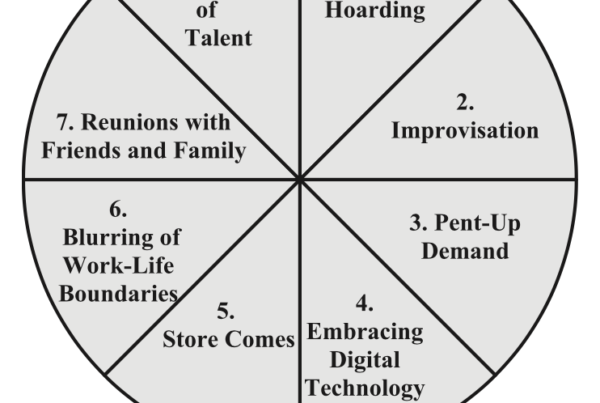After spectacular rise in the last two decades, the discipline of consumer behavior has matured and seems to be in search for some new excitement and new directions. The discipline seems to be experiencing midlife crisis. In my opinion, it is both an opportunity and an obligation for ACR as the leading organization of the discipline to provide leadership or at least act as a catalyst in exploring new exciting areas of research and theory. Fortunately, it seems that ACR can provide leadership by broadening the product market scope of the discipline. What we need is a strong commitment by ACR membership and other scholars and practitioners of consumer research.
My presidential address will attempt to suggest three specific areas into which the discipline of consumer behavior can easily broaden its scope and generate new excitement.
Need for Worldwide Orientation
Both ACR as an organization and consumer behavior as a discipline are predominantly American in their orientation. As markets and technologies become more global, it will become necessary for us to identify and research problems in consumer behavior on a worldwide basis. Not only will this broaden the market scope of the discipline will become enriched in the process of integrating research traditions and problems in consumer behavior as carried out by non U.S. scholars and practitioners. In short, it is time we admitted that there may be good research and theory developed outside the U.S. from which we can also benefit and enrich.
How can ACR as a catalyst in broadening the discipline’s horizons to thinking of the world customer and cross-national consumer behavior?
I propose three specific recommendations for your consideration.
First, we must actively broaden the membership of ACR by encouraging membership from non U.S. countries. In this regard, I have successfully tried to establish ACR National Representatives in more than twenty countries, and have asked Hans Thorelli to act as a coordinator of this effort. But the task has just begun and I hope the future leadership or ACR will be committed to this activity. It would be marvelous if ACR is reorganized as a world organization representing all scholars and practitioners of consumer behavior.
Second, in order to provide impetus to the discipline and its scholars and practitioners, I strongly urge you to think of establishing on a regular basis, ; track for all three days of our annual conference which is devoted to cross-national and/or comparative consumer research. It is simply not sufficient to provide one or two sessions on an ad hoc, reactive way when someone, especially from non U.S. membership, begs or puts pressure to pay attention to his neglected area of consumer behavior. In my opinion, a permanent track for all the three days of the conference will generate more interest and activity similar to the special issues of journals.
Third, a truly worldwide organization holds its annual meetings and specialized conferences in all areas of the world and not just in the East, West and the Midwest of United States. Indeed, more mature disciplines of physics, chemistry and mathematics is inevitable and therefore, have begun to organize their conferences and workshops on a more global basis.
I am aware of the potential issues of travel costs, physical facilities and different infrastructures, but look at AIB and especially ESOMAR who seem to have demonstrated that where there is a will, there is a way. I hope we will overcome these issues rather than use them as excuses for not trying at least some special workshops and conferences in other countries.
Beyond Consumer Choice Behavior
The discipline has in the past focused, perhaps very correctly on only one aspect of consumer behavior, namely consumer choice behavior, especially brand choice behavior
I think there are lots of exciting new areas for research and theory if we broaden the product scope of the discipline, Therefore, in addition to choice behavior, we must encourage research on procurement behavior (storage, delivery, financing), on consumption behavior (preparation, value added activities, frequency and timing on consumption) and on disposal behavior (waste, recycling. discarding).
This means we will have to learn new disciplines such as consumption economics, resource management and organization behavior in addition to our traditional disciplines of social psychology and personal psychology. It also means we should admit that we have suffered from consumer behavior myopia and correct the situation as soon as possible.
How can ACR correct the myopic vision of the discipline? It is less clear. However, let me suggest two things.
First, perhaps ACR can endorse the idea of organizing separate annual workshops or conferences on the neglected areas of procurement consumption and disposal behavior. To me this is very similar to the special annual conferences on attitude research and on marketing theory organized by AMA. Of course the obvious potential side effect of such specialized annual conferences will be less attendance at the regular annual conference. However, I think it can be compensated by greater worldwide orientation suggested earlier.
Second, ACR can try to generate research funds from both the corporate and the governmental agencies which are earmarked for the neglected areas of procurement consumption and disposal behavior. At lease, it can assist some institution such as MSI in generating such research funds.
Need for Normative Theory & Research
A third area for broadening the discipline’s horizons is to encourage normative theory and research. As we all know too well, our discipline has been, and still continues to be dominated by the descriptive research traditions. Hence, one more empirical study or one more descriptive theory seems to generate about the same enthusiasm as attending one more committee meeting or going to one more conference.
What we need is a fundamental shift away from the descriptive research tradition. We must think of encouraging more and more prescriptive research traditions appropriate for the policy makers, marketing practitioners and for consumers themselves. This does not mean conducting more empirical descriptive research on existing beliefs and behavior and using them as a basis for making recommendations. What I am suggesting is a basic normative bent prevalent in economics, religion, law and other similar disciplines.
For example, is there an alternative to the advocacy process so inherent in public policy in order to protect consumer satisfaction and even encourage it? To me, this is a normative issue which raises questions with what is presumed to be the most relevant process in consumerism. And, the answer does not or should not lie in asking consumers what they want. It must come by some other research tradition.
Similarly, can the marketing practitioners bridge the gap between producers and consumers by processes other than persuasion? It is my contention the marketing and selling will not be separable so long as persuasion remains the process inherent in marketing plans and tactics.
Finally, should consumers rely on consumer education and information for their protection or should they organize their buying power and use it as a mechanism to protect their interests? Which is more efficient with respect to cost and time?
ACR’s role in fostering the normative thinking will be uncomfortable and controversial. Since normative research and thinking is loaded with values, it is very likely that one member’s values may be in direct conflict with some other member’s values.
As an organization, ACR will have to contend with diverse values of its members if it fosters normative thinking in the discipline. Perhaps it is inevitable that ACR will be asked to get involved in making value judgments as the discipline shifts toward normative research and thinking. In any case, ACR’s role will be uncomfortable and controversial.
I sincerely hope that ACR and its members will provide leadership in these new emerging areas and guide the discipline through its midlife crisis.




